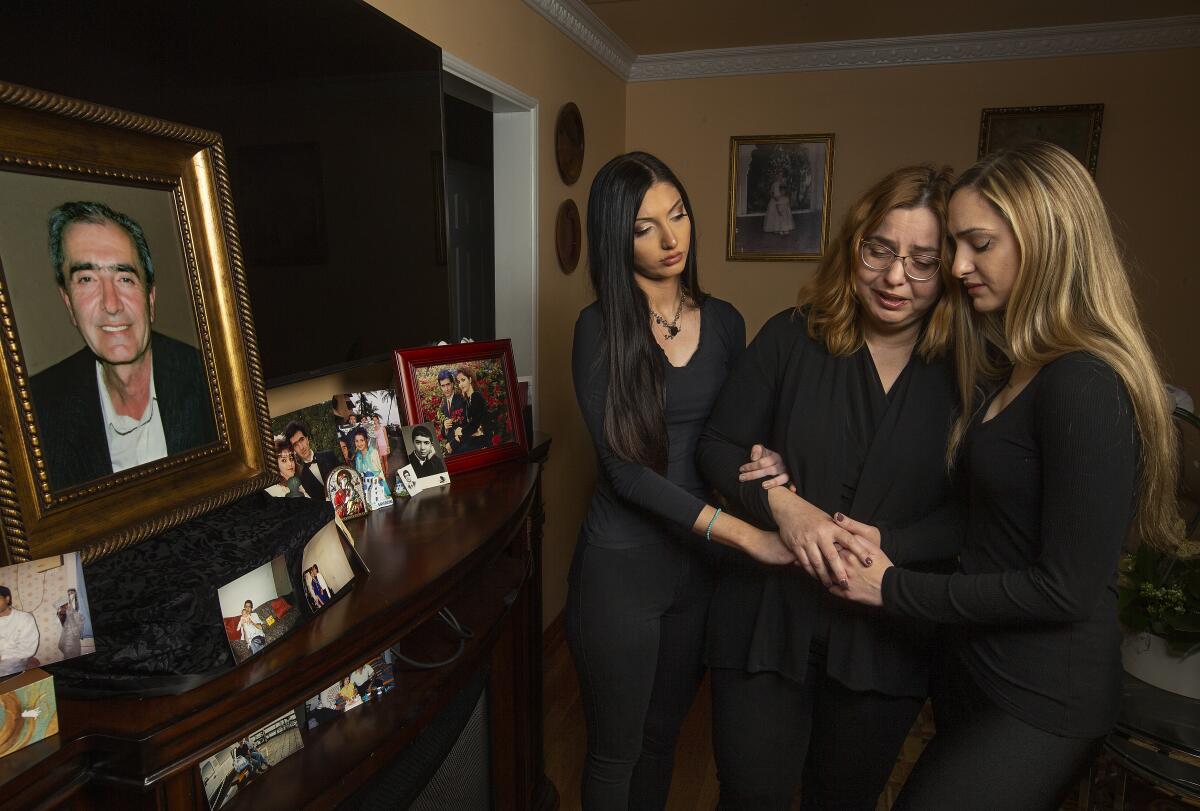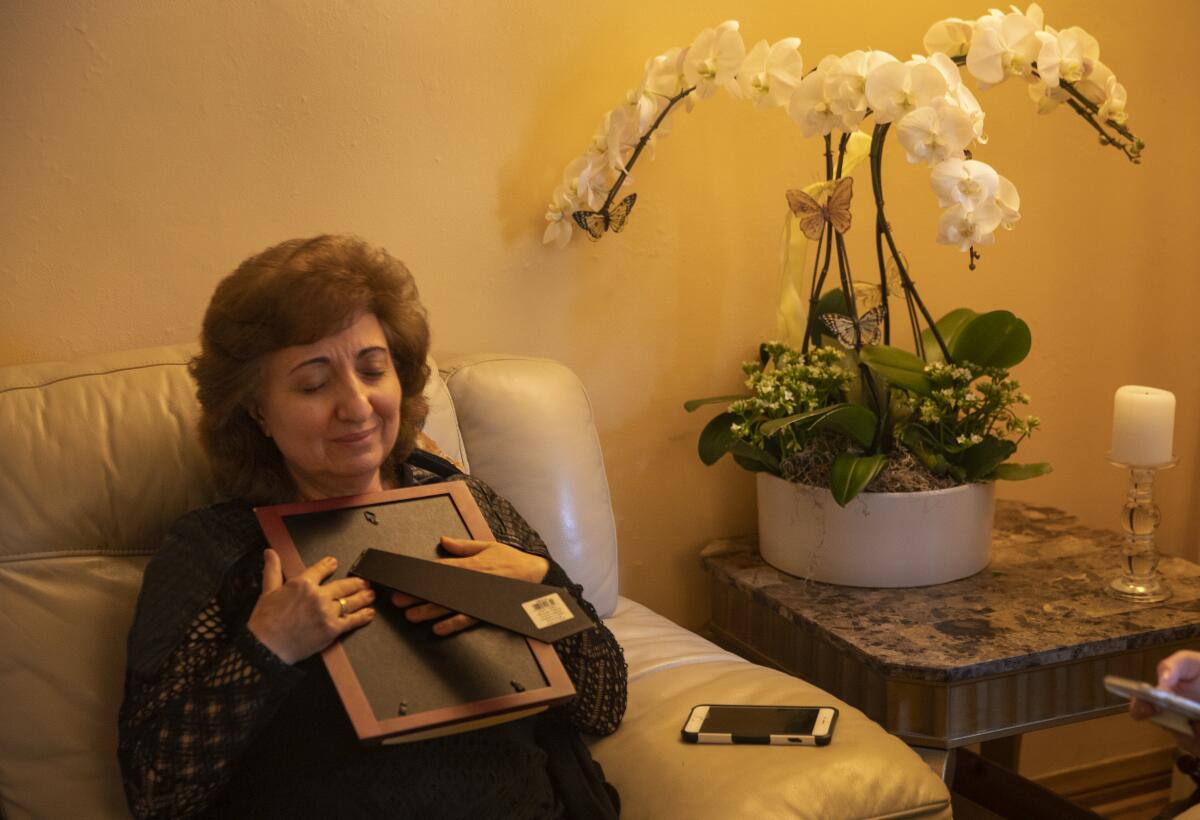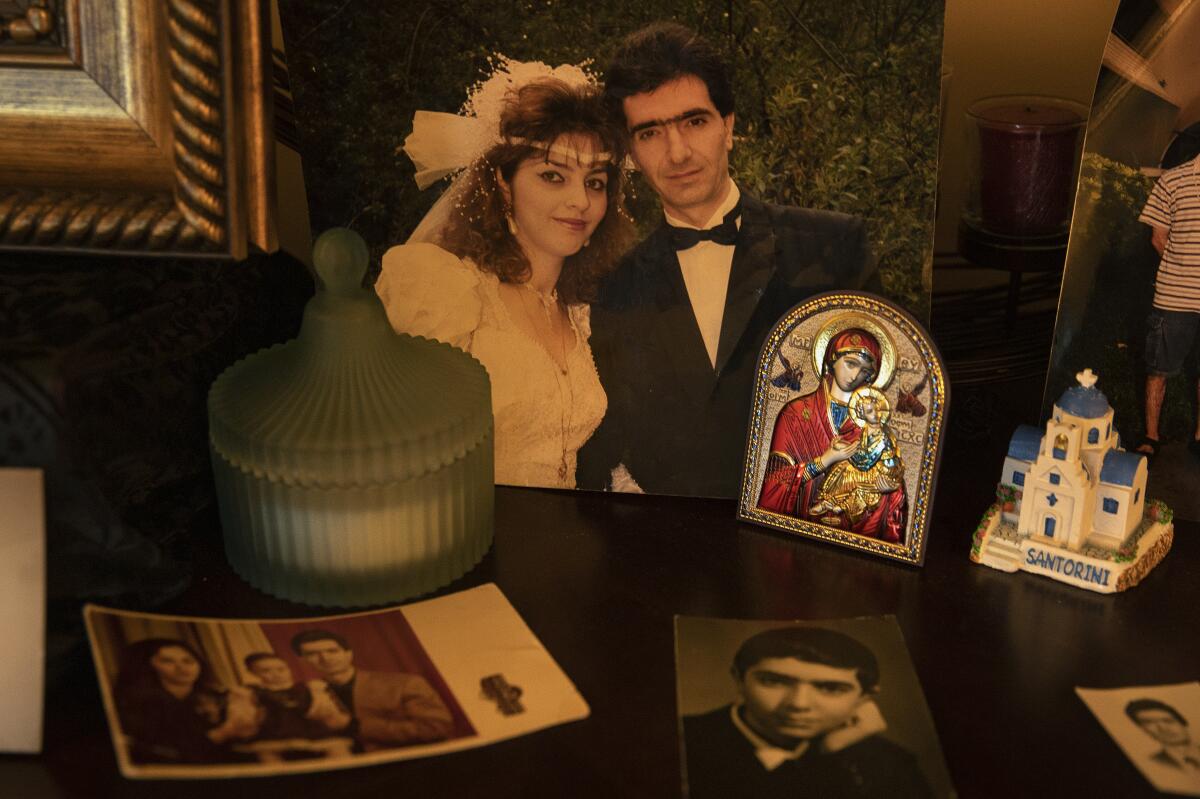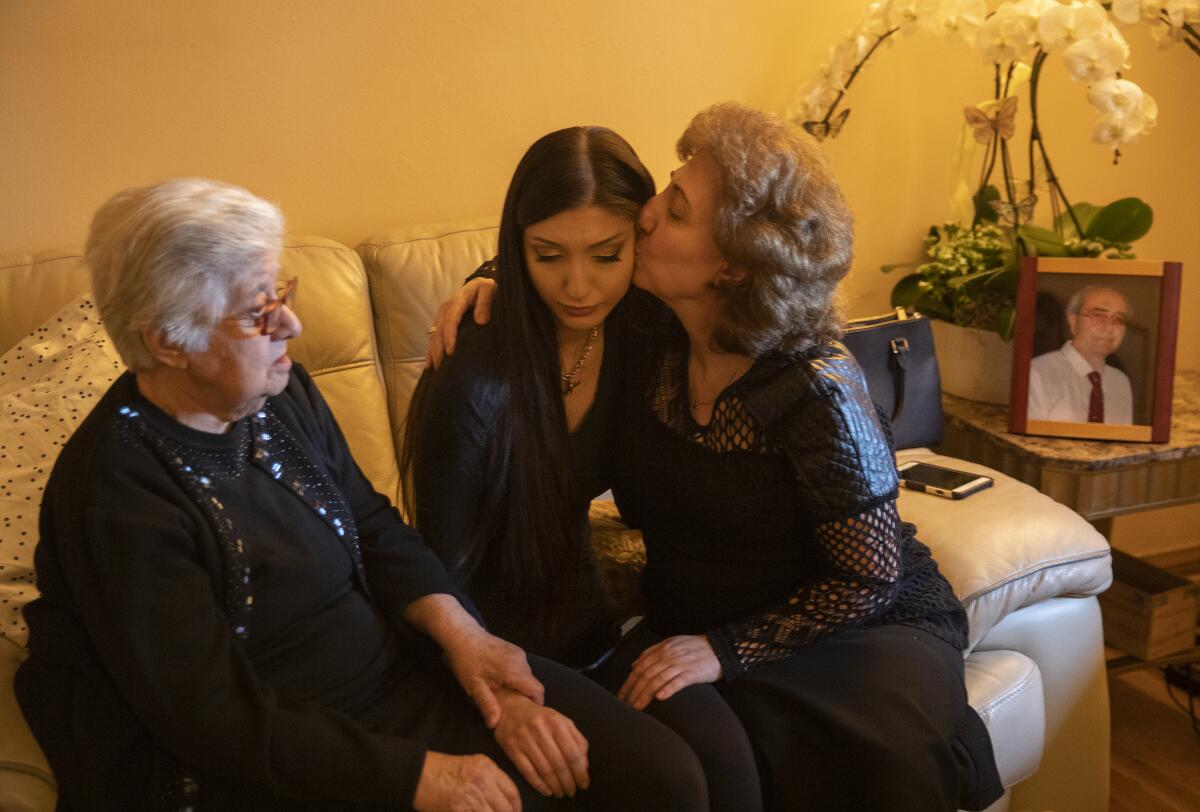Burbank cabbie built a great life and family. Then a passenger killed him in L.A.

- Share via
In mid-September I hailed a Yellow Cab at Union Station for a ride to LAX, and my driver was an affable chap. Traffic was light and the ride was quick, but we covered a lot of ground.
Burbank resident Oganes Papazyan, 62, said he had been a professional musician for many years and still played piano at his Armenian church and elsewhere, but as a family man, it was tough to make a decent living doing the thing he loved. He took up driving about 20 years ago, only to see the taxi industry decimated in recent years by the rise of Uber and Lyft.
Daniel Victor Torres, a 32-year-old man from Los Angeles, was charged by prosecutors on Tuesday with the murder of 68-year-old Burbank resident Oganes Papazyan in a Chinatown parking lot, according to authorities.
I asked if he could teach me to play piano. Sure, he said, but he couldn’t promise it would be easy.
It’s not every cab driver you remember, but Papazyan I did. A few weeks ago, during the fiasco at LAX, when passenger pickups were moved from terminal exits to a remote location and all was chaos, I tracked him down, knowing he’d have an interesting take. He told me he was trying to avoid airport fares after getting trapped in traffic so bad it took him more than an hour to go a few blocks. The situation was hard on passengers, too, he said, “too much stress for a lot of people.”
I planned to stay in touch. But then, on Nov. 17, two readers emailed me to say the cabbie I had just quoted in a column was dead. On Friday, Nov. 15, Papazyan had been stabbed to death by a passenger in a fast food parking lot near downtown Los Angeles.
According to the LAPD, Papazyan picked up his killer at Union Station and drove him to a nearby Burger King, where the passenger stabbed him and tried to steal the cab, then fled on foot. The suspect, who was homeless according to a detective I spoke to, was arrested two days later and charged with murder in what appeared to be a robbery attempt.
I got hold of William Rouse, general manager of Yellow Cab of Los Angeles, and asked if he thought the family would be willing to talk to me. We all knew about Papazyan’s death, but it would be nice to know more about his life. The family was extremely distraught, Rouse said, but he would tell them I had been in Papazyan’s cab and ask if they wanted to talk.
On Wednesday afternoon, I parked on the narrow, leafy Burbank street where Papazyan lived with his wife and the two daughters he had boasted about on my ride with him, one a lawyer and the other in college. The small house, built during World War II, could be a postcard depiction of tidy, middle-class, Southern California living.

Papazyan’s wife, Marina, and daughters Suzanna, 28, and Julianna, 23, were subdued and soft-spoken at first, their eyes red with grief. Gayane Telalyan, Papazyan’s sister, was also there, and all around were family photos that told stories of full and happy lives.
They showed Marina and Oganes as newlyweds. Suzanna and Julianna as kids. A proud mom and dad with Suzanna at her graduation from UCLA law school.
Papazyan’s prized piano was in a corner. He was happy there, especially when Suzanna accompanied him, his family told me. I confessed that I had asked him if he would help me cheat on the piano — I wanted him to help me memorize the keystrokes for 10 of my favorite songs, so I could play without putting in much work.
They laughed when I told them he didn’t endorse the idea, and Suzanna said she had tried the same trick with her father. He told me it would be more rewarding to put in the work and to understand and appreciate the beauty of music rather than be an impostor.
Marina brightened when I asked her to tell me how she met her husband. It was in Yerevan, Armenia, she said, at the home of a young uncle of hers. The uncle had a best friend, Oganes, who would drop by to play piano while the uncle played guitar.
“I was 10 and he was 20,” said Marina, blushing.
“She had a crush on him,” said Suzanna. Her mother giggled.
The uncle moved away, but Marina saw Oganes several times when she was a teenager.
“He was always well-dressed and he looked really good,” she said. “He was handsome.”
Then came the time when Oganes saw her not as a young girl, but as a woman. Marina’s grandmother had broken her leg, and when Marina went to visit her, Oganes was there too.
He was 32. She was 22.
The crush had lasted.
She wore a bright yellow dress, and he would later admit that he thought she was as radiant as the sun. They began dating, and one day, a day Marina won’t forget, they went to a restaurant.
“He said, ‘What do you think about moving to America?’” Marina said. And then he asked her to be his wife.
That turned out to be more complicated than either would have liked. Oganes already had his immigration papers in order and in 1989, he moved to Hollywood, where relatives from Armenia had relocated. It took Marina a while to get a visa and join her fiance.

She arrived on Sept. 12, 1990. They were married four days later and Oganes and his musician buddies provided the entertainment. The wedding photos, taken at the Mulholland Fountain in Griffith Park, are glamorous portraits of young, eternal love.
“I was born exactly nine months later,” said Suzanna.
Marina’s visa was expiring around that time, so she and Suzanna returned to Armenia, where Marina had to wait for the processing of an application to gain permanent status in the U.S. This ended up taking about 3½ years — at a time when the Soviet Union was coming apart and Armenia was in turmoil, with food and energy shortages.
Oganes visited as often as he could, and Marina — who had a bachelor’s degree in industrial engineering — went back to school for a master’s degree. Finally, the whole family was reunited in Los Angeles, and Julianna was born in 1996.
“On the same day as my husband,” said Marina.
They rented a house in Glendale, and with Marina working as an information systems analyst and Oganes behind the wheel of his cab, they began saving for their own home.
“The American dream was my mother’s dream,” said Suzanna.
The whole family went on house-hunting trips, and Suzanna would always check to see if a house had either a swimming pool or a yard big enough to build one. The Burbank house had room for a pool that was never built, but it became their home, and friends from the neighborhood, along with Burbank High buddies of Suzanna and Julianna, were frequent guests.
“Fourth of July is my mom’s favorite holiday, and she always wanted to barbecue hamburgers and hot dogs,” Suzanna said. Oganes would argue that his Armenian friends wouldn’t care for that stuff, so lamb was always added to the grill, too, and Independence Day became a celebration of two cultures.
Marina and her daughters reveled in such memories as they recounted their lives, momentarily distancing themselves from pain that will linger forever.
If he got home from work before Marina, the family said, Oganes started throwing food into the skillet and frying everything and anything while singing “Figaro.” And if one of the girls’ friends dropped by, they were welcome to join the family for dinner.
Once, the whole family was in Oganes’ cab when a woman tried to hail it for a ride to the cemetery. The family had plans, but it was getting dark and he didn’t want her out there alone — a woman roughly the age of his daughters — so the Yellow Cab took a detour and dropped off the stranger. Oganes refused to accept her payment.
Marina remembered dancing with her husband at a party when she was 50 and he was 60, the romance still there, 40 years after she first set eyes on him.
Suzanna recalled singing as her dad played piano at weddings and other celebrations, and she recalled her dad driving to UCLA in the middle of the night to comfort her when “a boy broke my heart.”

Julianna recalled how upset she was as a young girl when she learned that cigarettes were killing people, and how she cried until her dad gave in and kicked the habit.
“Her mannerisms are the same as his,” Suzanna said of Julianna and their father.
They chewed the same way and slept the same way, on their sides with hands under their heads.
“They both leave the utensil drawer open to the same degree,” said Suzanna. “Two inches!”
Julianna will graduate from Cal State Northridge in the spring with a degree in communications, and she can already anticipate the pain of his absence at the event. Suzanna said her father couldn’t wait to be a grandfather.
Her husband sang opera in Armenia, Marina said. He loved classical and pop and jazz and he loved playing holiday music. She was going to buy him an accordion for Christmas.
It was a good life, Marina said, but it ended too soon.
Lopez writes for the Los Angeles Times.

